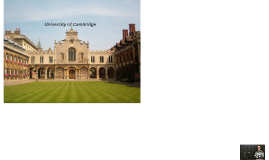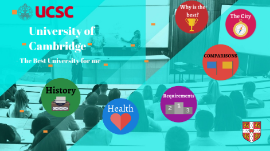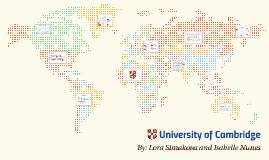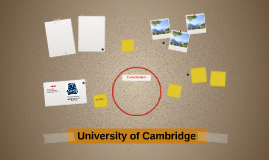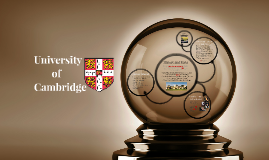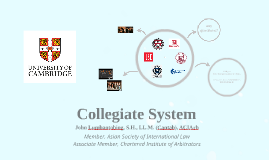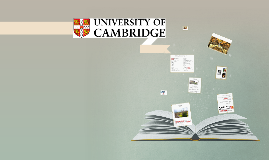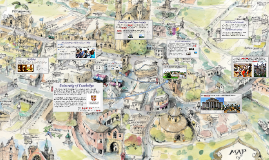University of Cambridge
Transcript: Motto: "Hinc lucem et pocula sacra" (Latin) Motto in English Literal: "From here, light and sacred draughts" According to the 2016 Complete University Guide, the University of Cambridge is ranked first amongst the UK’s universities. Cambridge University operates eight arts, cultural, and scientific museums, and a botanic garden. There is a Council of each School – including representatives of its Faculties and Departments. The Schools are represented on the General Board. The University is a confederation of Schools, Faculties, Departments and Colleges. The Colleges are governed by their own statutes and regulations, but are integral to the make-up of the University of Cambridge. Libraries and museums Museum of Archaeology and Anthropology houses the University's collections of local antiquities, together with archaeological and ethnographic artefacts from around the world. Faculties and Departments Humanities and Social Sciences, Physical Sciences, Technology. Students live, eat and socialise in one of the University’s 31 autonomous Colleges. Undergraduates receive College supervisions – small group teaching sessions – regarded as one of the best teaching models in the world. Colleges The mission of the University of Cambridge is to contribute to society through the pursuit of education, learning, and research at the highest international levels of excellence. Core values The Fitzwilliam Museum, is the art and antiquities museum. Cambridge is consistently ranked as one of the world's best universities.The university has educated many notable alumni, including eminent mathematicians, scientists, politicians, lawyers, philosophers, writers, actors, and foreign Heads of State. Publishing and assessments Trinity College, Cambridge The University's publishing arm, the Cambridge University Press, is the oldest printer and publisher in the world, and it is the second largest university press in the world. Mission Each College has its own internal procedures. They select their own students, subject to University regulations, and most admit both undergraduate and postgraduate students. Reputation and rankings Cambridge University Library The Faculty of Law Six simple steps. If you want to apply to Cambridge, the process is much the same as that for other universities. However, at Cambridge the process starts earlier to allow time for all of the application information to be gathered and considered and for you to sit your written assessments (where required). King's College, Cambridge Faculty of Divinity at Cambridge University University Faculties organise teaching and research into individual subjects or groups of subjects. Their work is normally organised into sub-divisions called Departments. Centres of studies are controlled by committees of management, bringing together representatives from several disciplines. The university has 114 libraries. The Cambridge University Library is the central research library, which holds over 8 million volumes. It is a legal deposit library, therefore it is entitled to request a free copy of every book published in the UK and Ireland. In addition to the University Library and its dependents, almost every faculty or department has a specialised library. The University of Cambridge is a collegiate public research university in Cambridge, England. Founded in 1209, Cambridge is the second-oldest university in the English-speaking world and the world's fourth-oldest surviving university. Applying University of Cambridge Schools Corpus Christi College, Cambridge The University's core values are as follows: freedom of thought and expression freedom from discrimination Darwin College, Cambridge The University's mission and core values The older colleges often possess many early books and manuscripts in a separate library. For example, Trinity College's Wren Library has more than 200,000 books printed before 1800, while Corpus Christi College's Parker Library possesses one of the greatest collections of medieval manuscripts in the world, with over 600 manuscripts. Schools There are six Schools, which each form an administrative grouping of Faculties and other institutions. They are: Arts and Humanities, Biological Sciences, Clinical Medicine, 1. Course 2. College 3.Apply 4. Written assessment 5. Interview 6. Decision






